KLEINE MANIFESTE konzentriert sich auf das Verhältnis von künstlerischen Positionen und deren Verhältnis zu aktuellen politischen und gesellschaftlichen Prozessen. Was kann „politische“ Praxis im künstlerischen Feld bedeuten? Sind es vielleicht die kleinen, feinen Projekte, die etwas bewirken können? Wo kann sich die persönliche Verantwortung des Einzelnen verbunden mit den gesellschaftlichen Entwicklungen noch manifestieren?
Kleine Manifeste #06
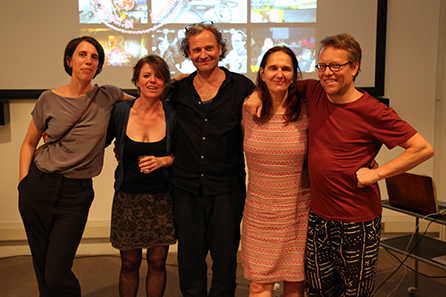
KINOKI – Pioniere – Foto: Manfred Neuwirth
KLEINE PIONIERE
Kinoki präsentiert Želimir Žilnik
Dienstag 13.6., 20:00
Medienwerkstatt Wien
1070, Neubaugasse 40a
Einführung: Konzept und Arbeit von Kinoki. Verein für audiovisuelle Selbstbestimmung
„Wir blenden die Sterne mit unseren Projektoren!“ Die Devise entnahmen wir dem Manifest der KINOKI aus den 1920ern, die Projektoren dem Müllhaufen der Geschichte, auf dem die Errungenschaften der ehemaligen DDR in den 1990ern entsorgt wurden. Seitdem arbeiten wir daran der dokumentarischen Illusion von filmischer Wirklichkeit als gleichzeitige Überlistung und Verdichtung der Realität auf die Spur zu kommen. Denn Einsichten in die Fabrikationen des Dokumentarischen als technische, soziale und politische Prozesse sprengen festgefahrene Identitäten und bringen die Möglichkeiten von Solidarität erneut ins Spiel. Aus diesen Gründen zeigen wir Filme, machen Filme, und laden Leute ein, die Filme machen, um sie gemeinsam zu diskutieren. [mehr]
Little Pioneers
R: Želimir Žilnik, YU 1968, 14min.
Auf sich allein gestellte Kinder erzählen von ihrem Leben und ihren Unternehmungen. Die Filmkamera wird dabei ihrer Komplizin.
Cosmo Girls
R: Želimir Žilnik, HU 2000, 26min.
Portraits von Frauen, die davon handeln, wie sie sich und ihre Familien mit den unterschiedlichsten Tätigkeiten ökonomisch absichern.
Kleine Manifeste #05

Photo: Copyright Dirty Diaries, 2009
DIRTY DIARIES MANIFESTO
(Sweden, 2009)
Mia Engberg
[First published online on the website for the film: dirtydiaries.se]
Mia Engberg’s omnibus film Dirty Diaries (Sweden, 2009) brings together thirteen short straight and queer porn films made by Swedish feminists. The film led to some controversy over the use of public funds to produce pornography after the Swedish Film Institute funded the film to a total of 500,000 kr. In a similar manner to “Puzzy Power,” all of the Dirty Diaries shorts follow a series of statements of principles. Unlike Dogme ’95 the Dirty Diaries manifesto does not dictate a style so much as a feminist, queer positive philosophy of sexual representation.
1. BEAUTIFUL THE WAY WE ARE
To hell with the sick beauty ideals! Deep self-hatred keeps a lot of women’s energy and creativity sapped. The energy that could be focused into exploring our own sexuality and power is being drained off into diets and cosmetics. Don’t let the commercial powers control your needs and desires.
2. FIGHT FOR YOUR RIGHT TO BE HORNY
Male sexuality is seen as a force of nature that has to be satisfi ed at all costs while women’s sexuality is accepted only if it adapts to men’s needs. Be horny on your own terms.
3. A GOOD GIRL IS A BAD GIRL
We are fed up with the cultural cliché that sexually active and independent women are either crazy or lesbian and therefore crazy. We want to see and make movies where Betty Blue, Ophelia and Thelma & Louise don’t have to die in the end.
4. SMASH CAPITALISM AND PATRIARCHY
The porn industry is sexist because we live in a patriarchal capitalist society. It makes profit out of people’s needs for sex and erotica and women get exploited in the process. To fight sexist porn you have to smash capitalism and patriarchy.
5. AS NASTY AS WE WANNA BE
Enjoy, take charge or let go. Say NO when you want, to be able to say YES when YOU want.
6. LEGAL AND FREE ABORTION IS A HUMAN RIGHT!
Everyone has the right to control their own body. Millions of women suffer from unwanted pregnancies and die from illegal abortions every year. Fuck the moral right for preaching against birth control and sex information.
7. FIGHT THE REAL ENEMY!
Censorship cannot liberate sexuality. It is impossible to change the image of women’s sexuality if sexual images in themselves are taboo. Don’t attack women for displaying sex. Attack sexism for trying to control our sexuality.
8. STAY QUEER
A lot of opposition to erotica is homophobic and even more transphobic. We don’t believe in the fight between the sexes but in the fight against sexes. Identify as any gender you want and make love to whoever you want. Sexuality is diverse.
9. USE PROTECTION
“I’m not saying go out an’ do it, but if you do, strap it up before you smack it up.” (Missy Elliott)
10. DO IT YOURSELF
Erotica is good and we need it. We truly believe that it is possible to create an alternative to the mainstream porn industry by making sexy films we like.
(Sweden, 2009)
Mia Engberg
[First published online on the website for the film: dirtydiaries.se]
Mia Engberg’s omnibus film Dirty Diaries (Sweden, 2009) brings together thirteen short straight and queer porn films made by Swedish feminists. The film led to some controversy over the use of public funds to produce pornography after the Swedish Film Institute funded the film to a total of 500,000 kr. In a similar manner to “Puzzy Power,” all of the Dirty Diaries shorts follow a series of statements of principles. Unlike Dogme ’95 the Dirty Diaries manifesto does not dictate a style so much as a feminist, queer positive philosophy of sexual representation.
1. BEAUTIFUL THE WAY WE ARE
To hell with the sick beauty ideals! Deep self-hatred keeps a lot of women’s energy and creativity sapped. The energy that could be focused into exploring our own sexuality and power is being drained off into diets and cosmetics. Don’t let the commercial powers control your needs and desires.
2. FIGHT FOR YOUR RIGHT TO BE HORNY
Male sexuality is seen as a force of nature that has to be satisfi ed at all costs while women’s sexuality is accepted only if it adapts to men’s needs. Be horny on your own terms.
3. A GOOD GIRL IS A BAD GIRL
We are fed up with the cultural cliché that sexually active and independent women are either crazy or lesbian and therefore crazy. We want to see and make movies where Betty Blue, Ophelia and Thelma & Louise don’t have to die in the end.
4. SMASH CAPITALISM AND PATRIARCHY
The porn industry is sexist because we live in a patriarchal capitalist society. It makes profit out of people’s needs for sex and erotica and women get exploited in the process. To fight sexist porn you have to smash capitalism and patriarchy.
5. AS NASTY AS WE WANNA BE
Enjoy, take charge or let go. Say NO when you want, to be able to say YES when YOU want.
6. LEGAL AND FREE ABORTION IS A HUMAN RIGHT!
Everyone has the right to control their own body. Millions of women suffer from unwanted pregnancies and die from illegal abortions every year. Fuck the moral right for preaching against birth control and sex information.
7. FIGHT THE REAL ENEMY!
Censorship cannot liberate sexuality. It is impossible to change the image of women’s sexuality if sexual images in themselves are taboo. Don’t attack women for displaying sex. Attack sexism for trying to control our sexuality.
8. STAY QUEER
A lot of opposition to erotica is homophobic and even more transphobic. We don’t believe in the fight between the sexes but in the fight against sexes. Identify as any gender you want and make love to whoever you want. Sexuality is diverse.
9. USE PROTECTION
“I’m not saying go out an’ do it, but if you do, strap it up before you smack it up.” (Missy Elliott)
10. DO IT YOURSELF
Erotica is good and we need it. We truly believe that it is possible to create an alternative to the mainstream porn industry by making sexy films we like.
Kleine Manifeste #04
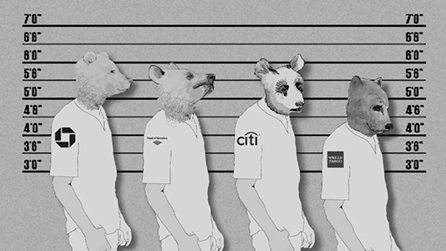
Transnational Capitalism Examined
Friday, 9th October 2015, 7 PM:
Talk Mike Watson
The Bull Laid Bear, dir: Zanny Begg & Oliver Ressler, 2012, 24 min.
Leave It in the Ground, dir: Oliver Ressler, 2013, 18 min.
Saturday, 10th October 2015, 7 PM:
Conversation between Oliver Ressler and Mike Watson
The Fittest Survive, dir: Oliver Ressler, 2006, 23 min.
European Corrections Corporation (Imprisonment in Great Britain), dir: Martin Krenn & Oliver Ressler, 2003, 17 min.
The Visible and the Invisible, dir: Oliver Ressler, 2014, 20 min.
As the economic crisis continues three sectors of transnational capital in particular stand out as the most aggressive and prone to seek neo-fascist political arrangements to force forward accumulation as the crisis continues: speculative financial capital, the military-industrial-security complex, and the extractive and energy sector.
What all of these aspects have in common is their transcendence of national boundaries. Globalization, which once promised unbound freedoms has become a restrictive force as finance capitalism, punitive military actions and commodity extraction operate on a transnational level, unanswerable to individual political subjects or their governments.
‘Transnational Capitalism Examined’: presents two evenings of screenings and talks around the film work of Oliver Ressler, an artist who approaches and presents the documentary form via an artistic outlook. Such an approach, which frequently involves collaboration with activist groups aims to concretize arts critical capacity whilst exposing the effects of Transnational Capitalism. Whilst The Bull Laid Bare and The Visible and the Invisible explore the machinations of international debt and finance, The Fittest Survive examines the perverse link between corporations and warfare whilst, finally, Leave it in the Ground examines the politics of fossil fuel extraction.
A talk by Mike Watson – a Rome based critic, theorist and curator – will examine the potential for politically engaged art within the context of Ressler’s work, whilst a dialogue between Watson and Ressler will assess the efficacy of the artist’s approach in critiquing a global capital system.
Mike Watson is an art theorist, critic and curator based in Italy who is principally focused on the relation between art and politics. He holds a PhD in Philosophy from Goldsmiths College and has curated for Nomas Foundation and at both the 55th and 56th Venice Biennale. He is completing a book entitled ‘Towards a Conceptual Militancy’ for ZerO books and writes regularly for Frieze, Art Review and Radical Philosophy.
Oliver Ressler lives and works in Vienna and produces installations, projects in public space, and films on issues such as economics, democracy, global warming, forms of resistance and social alternatives.www.ressler.at
Friday, 9th October 2015, 7 PM:
Talk Mike Watson
The Bull Laid Bear, dir: Zanny Begg & Oliver Ressler, 2012, 24 min.
Leave It in the Ground, dir: Oliver Ressler, 2013, 18 min.
Saturday, 10th October 2015, 7 PM:
Conversation between Oliver Ressler and Mike Watson
The Fittest Survive, dir: Oliver Ressler, 2006, 23 min.
European Corrections Corporation (Imprisonment in Great Britain), dir: Martin Krenn & Oliver Ressler, 2003, 17 min.
The Visible and the Invisible, dir: Oliver Ressler, 2014, 20 min.
As the economic crisis continues three sectors of transnational capital in particular stand out as the most aggressive and prone to seek neo-fascist political arrangements to force forward accumulation as the crisis continues: speculative financial capital, the military-industrial-security complex, and the extractive and energy sector.
What all of these aspects have in common is their transcendence of national boundaries. Globalization, which once promised unbound freedoms has become a restrictive force as finance capitalism, punitive military actions and commodity extraction operate on a transnational level, unanswerable to individual political subjects or their governments.
‘Transnational Capitalism Examined’: presents two evenings of screenings and talks around the film work of Oliver Ressler, an artist who approaches and presents the documentary form via an artistic outlook. Such an approach, which frequently involves collaboration with activist groups aims to concretize arts critical capacity whilst exposing the effects of Transnational Capitalism. Whilst The Bull Laid Bare and The Visible and the Invisible explore the machinations of international debt and finance, The Fittest Survive examines the perverse link between corporations and warfare whilst, finally, Leave it in the Ground examines the politics of fossil fuel extraction.
A talk by Mike Watson – a Rome based critic, theorist and curator – will examine the potential for politically engaged art within the context of Ressler’s work, whilst a dialogue between Watson and Ressler will assess the efficacy of the artist’s approach in critiquing a global capital system.
Mike Watson is an art theorist, critic and curator based in Italy who is principally focused on the relation between art and politics. He holds a PhD in Philosophy from Goldsmiths College and has curated for Nomas Foundation and at both the 55th and 56th Venice Biennale. He is completing a book entitled ‘Towards a Conceptual Militancy’ for ZerO books and writes regularly for Frieze, Art Review and Radical Philosophy.
Oliver Ressler lives and works in Vienna and produces installations, projects in public space, and films on issues such as economics, democracy, global warming, forms of resistance and social alternatives.www.ressler.at
Kleine Manifeste #03
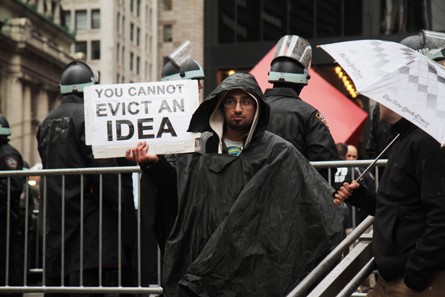
The Riahi Brothers im Gespräch mit Manfred Neuwirth
Mittwoch 2. April 2014, 19:30 Uhr Medienwerkstatt Wien, 1070, Neubaugasse 40a
IDEA, SCRIPT & DIRECTORS
The Riahi Brothers (Arash & Arman T. Riahi)
See more at: http://www.everydayrebellion.net/crewcast/
EVERYDAY REBELLION ist ein Cross-Media-Projekt und Dokumentarfilm über moderne und kreative Formen des gewaltlosen Protestes und zivilen Ungehorsams. Das Projekt befasst sich mit den Folgen einer sich rasch verändernden Gesellschaft, in der neue Formen des Protestes die Macht der Diktaturen und manchmal auch von wirtschaftlichen Systemen untergraben können.
„Wie entstehen Bewegungen? Wie protestiert man effizient, wie organisiert man den Widerstand, wie macht man sich bemerkbar? Wie kommuniziert man im Chaos, wie wird man nicht festgenommen, wie verhält man sich unter Druck, gegenüber der Staatsgewalt oder wenn man doch festgenommen wird? Wie erhält man eine Bewegung am Leben? Was ist überhaupt der Auslöser für Menschen, nicht mehr zuzusehen, sondern sich unter persönlichem Einsatz zu engagieren? (…) Das hinterlässt tiefen Eindruck; vor allem, weil man als Zuseherin nicht umhin kann, das eigene Engagement, die eigene Trägheit, die eigene Wurschtigkeit zu hinterfragen: Wie weit wäre/ist man selber bereit zu gehen, um Protest zu signalisieren? Was muss passieren, damit man den Hintern vom Sofa hochkriegt und man etwas unternimmt, das über einen verbalen Wutanfall auf Twitterbook hinausgeht? "Everyday Rebellion" ist ein großer, wichtiger, empfehlenswerter Film: mitreißend, bewegend, aufwühlend. Und anregend, definitiv.“ (Doris Knecht, Kurier 25.3.14)
Mittwoch 2. April 2014, 19:30 Uhr Medienwerkstatt Wien, 1070, Neubaugasse 40a
IDEA, SCRIPT & DIRECTORS
The Riahi Brothers (Arash & Arman T. Riahi)
See more at: http://www.everydayrebellion.net/crewcast/
EVERYDAY REBELLION ist ein Cross-Media-Projekt und Dokumentarfilm über moderne und kreative Formen des gewaltlosen Protestes und zivilen Ungehorsams. Das Projekt befasst sich mit den Folgen einer sich rasch verändernden Gesellschaft, in der neue Formen des Protestes die Macht der Diktaturen und manchmal auch von wirtschaftlichen Systemen untergraben können.
„Wie entstehen Bewegungen? Wie protestiert man effizient, wie organisiert man den Widerstand, wie macht man sich bemerkbar? Wie kommuniziert man im Chaos, wie wird man nicht festgenommen, wie verhält man sich unter Druck, gegenüber der Staatsgewalt oder wenn man doch festgenommen wird? Wie erhält man eine Bewegung am Leben? Was ist überhaupt der Auslöser für Menschen, nicht mehr zuzusehen, sondern sich unter persönlichem Einsatz zu engagieren? (…) Das hinterlässt tiefen Eindruck; vor allem, weil man als Zuseherin nicht umhin kann, das eigene Engagement, die eigene Trägheit, die eigene Wurschtigkeit zu hinterfragen: Wie weit wäre/ist man selber bereit zu gehen, um Protest zu signalisieren? Was muss passieren, damit man den Hintern vom Sofa hochkriegt und man etwas unternimmt, das über einen verbalen Wutanfall auf Twitterbook hinausgeht? "Everyday Rebellion" ist ein großer, wichtiger, empfehlenswerter Film: mitreißend, bewegend, aufwühlend. Und anregend, definitiv.“ (Doris Knecht, Kurier 25.3.14)
Kleine Manifeste #02
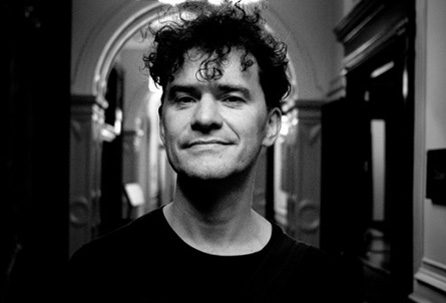
film festival form
A MANIFESTO
Von Marc Cousins
The Oberhausen Manifesto helped launch the New German Cinema; the Danish Dogme 95 manifesto brought new ideas to, and detoxed, 90s cinema. The film festival world could do with a manifesto too … (mehr)
A MANIFESTO
Von Marc Cousins
The Oberhausen Manifesto helped launch the New German Cinema; the Danish Dogme 95 manifesto brought new ideas to, and detoxed, 90s cinema. The film festival world could do with a manifesto too … (mehr)
Kleine Manifeste #01
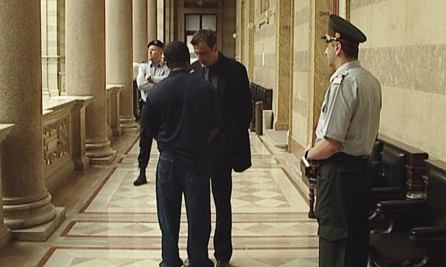
ONE WORLD FILMCLUBS
Do 17. Jänner 2013, 20:00
Medienwerkstatt Wien, 1070, Neubaugasse 40a
Das Projekt ONE WORLD FILMCLUBS ermutigt Jugendliche, Filmclubs ins Leben zu rufen und diese kontinuierlich zu betreiben. Der Schwerpunkt liegt dabei auf der Vermittlung des Dokumentarfilms in all seinen Erscheinungsformen. Die Initiatoren Angelika Schuster und Tristan Sindelgruber berichten aus ihren Erfahrungen mit dem Projekt.
anschließend Filmvorführung:
Operation Spring
Österreich 2005, 95 min
Regie: Angelika Schuster und Tristan Sindelgruber
OPERATION SPRING ist ein Dokumentarfilmthriller über Gerichtsverfahren gegen Afrikaner, die in Österreich im Mai 1999 als Mitglieder einer weltweit agierenden nigerianischen Drogenmafia verhaftet wurden. Erstmals werden neue Ermittlungsmethoden erprobt und neue Gesetze angewandt. Der Film stellt die Frage, ob die Angeklagten jemals die Chance auf ein faires Verfahren hatten.
„Akribisch recherchiert und spannend wie in einem Gerichtssaaldrama. In dieser Mobilmachung einer Wut, die auf Fakten, nicht auf der Wahrheit, denn die wird hier nicht verhandelt, beruht, liegt eine der großen Stärken von Operation Spring.“ RAY-Kinomagazin
Gespräch zum Film | Moderation: Manfred Neuwirth
Eine Veranstaltung in Kooperation mit der Universität für künstlerische und industrielle Gestaltung Linz – Institut Kunst und Gestaltung
Do 17. Jänner 2013, 20:00
Medienwerkstatt Wien, 1070, Neubaugasse 40a
Das Projekt ONE WORLD FILMCLUBS ermutigt Jugendliche, Filmclubs ins Leben zu rufen und diese kontinuierlich zu betreiben. Der Schwerpunkt liegt dabei auf der Vermittlung des Dokumentarfilms in all seinen Erscheinungsformen. Die Initiatoren Angelika Schuster und Tristan Sindelgruber berichten aus ihren Erfahrungen mit dem Projekt.
anschließend Filmvorführung:
Operation Spring
Österreich 2005, 95 min
Regie: Angelika Schuster und Tristan Sindelgruber
OPERATION SPRING ist ein Dokumentarfilmthriller über Gerichtsverfahren gegen Afrikaner, die in Österreich im Mai 1999 als Mitglieder einer weltweit agierenden nigerianischen Drogenmafia verhaftet wurden. Erstmals werden neue Ermittlungsmethoden erprobt und neue Gesetze angewandt. Der Film stellt die Frage, ob die Angeklagten jemals die Chance auf ein faires Verfahren hatten.
„Akribisch recherchiert und spannend wie in einem Gerichtssaaldrama. In dieser Mobilmachung einer Wut, die auf Fakten, nicht auf der Wahrheit, denn die wird hier nicht verhandelt, beruht, liegt eine der großen Stärken von Operation Spring.“ RAY-Kinomagazin
Gespräch zum Film | Moderation: Manfred Neuwirth
Eine Veranstaltung in Kooperation mit der Universität für künstlerische und industrielle Gestaltung Linz – Institut Kunst und Gestaltung
